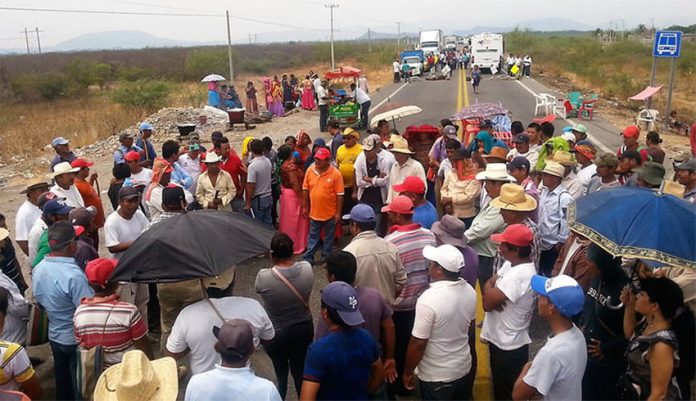Two environmental activists in the Isthmus of Tehuantepec region of Oaxaca have denounced the presidential decree that fast-tracks government infrastructure projects and protects them from scrutiny and legal challenges.
Published in the government’s official gazette last week, the decree shields from scrutiny the construction of infrastructure projects in a wide range of sectors by declaring them pertinent to national security.
Two environmental group leaders who spoke with the newspaper El Universal asserted they won’t stand by and allow the decree to violate their rights.
The government is building a trade corridor across the Isthmus of Tehuantepec, a project that includes construction of a new highway and gas pipeline, modernization of the existing railroad and upgrades to the ports in Salina Cruz, Oaxaca, and Coatzacoalcos, Veracruz.
The project faces considerable opposition from environmental and indigenous rights groups.
Miguel Ángel García Aguirre, regional coordinator of the National Committee for the Defense and Conservation of Los Chimalapas Forest, said the decree uses similar language to that used by “repressive” former president Gustavo Díaz Ordaz, who was in office when the armed forces carried out the Tlatelolco massacre of students in Mexico City.
He warned that individual rights could be threatened by the decree, which allows the federal government to avoid having its projects halted by injunctions and other legal instruments.
García said the decree – which he described as “terrible and dangerous” – will be met with “very strong indigenous resistance” in the Isthmus region because it opens the door to possible human rights violations, including repression, against people protesting infrastructure projects.
Betina Cruz Velázquez, a representative for the People’s Assembly for the Defense of Land and Territory in the Isthmus, said the decree will remove the obligation for environmental impact assessments to be carried out before infrastructure projects break ground. The removal of that requirement – due to the fast-tracking aspect of the decree – is in violation of the constitution and international agreements to which Mexico is party, she charged.
The decree tramples on indigenous people’s rights, Cruz said, adding that the group she represents is preparing to take legal action against it. The goal, she said, is to block “authoritarian policies” that threaten people’s freedoms.
The government intends to invest more than 10 billion pesos (US $465 million) in the trade corridor next year, and activists fear that the use of that money won’t be transparent as a result of the presidential decree. Several consultation processes on projects in the Isthmus haven’t been completed, and there are concerns that the government will go ahead with work before they are finished.
“We think [the decree] is grave for the indigenous communities,” said Irma Pineda Santiago, Mexico’s representative to the United Nations Permanent Forum on Indigenous Issues.
“There is a risk that free, prior and informed consultations will be omitted, which would violate human and environmental rights, and the right to consultation,” she said.
With reports from El Universal
